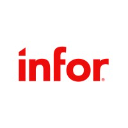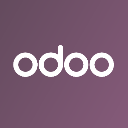12 alternatives to NetSuite for smoother, more flexible business management
NetSuite has long been the cloud ERP of choice for structuring operations, finance, human resources and inventory in growing companies. But let's face it: what's right for a multinational doesn't always make sense for a company in the throes of structuring or looking for flexibility.
Between high costs, rigid interfaces, and sometimes cumbersome implementations, more and more IS managers, CFOs and entrepreneurs are asking themselves: is there an ERP solution better suited to their organization, their tools, their way of working?
💡 The answer is yes. And good news: we've compared 12 alternatives to NetSuite for you that tick the essential boxes: seamless integration, global support, HCM and finance functionality, native cloud, and above all modern user experience.
What is NetSuite?
NetSuite, owned by Oracle since 2016, is an all-in-one cloud ERP (Enterprise Resource Planning) that centralizes a company's vital functions: accounting, financial management, CRM, HR, supply chain, e-commerce, and more.
🎯 It is aimed primarily at mid-sized and global organizations needing a single platform to manage their business on an international scale.
Designed for cloud-native deployment, NetSuite is attractive for its functional scope and its ability to evolve with the company. It includes modules for financial management, payroll, talent management, purchasing and performance monitoring. It's a robust solution, designed for organizations looking for :
- centralized governance
- international compliance
- and a 360° view of their operations.
But while NetSuite is powerful, it is sometimes perceived as complex to implement, inflexible and costly in terms of support and customization. This opens the door to lighter, more specialized alternatives... or simply ones better adapted to new business needs.
Why consider an alternative to NetSuite?
Adopting NetSuite means taking a gamble on the centralization and power of cloud ERP. But it's not the right choice for every company, especially those looking for greater flexibility, a better cost/value ratio or a smoother user experience. Here are the main reasons why more and more organizations are looking for alternatives to NetSuite.
High cost and uncertain ROI
NetSuite's pricing is opaque, with high license fees, significant implementation costs, and support sometimes billed as an option. For some companies, the returnon investment doesn't justify the initial commitment, especially when more accessible, modular and transparent cloud ERP solutions are available.
Implementation complexity
Deploying NetSuite can take several months, mobilize considerable internal resources and require the support of external consultants. This process can become an obstacle for companies looking for a fast implementation, an intuitive tool or a light integration with their existing ecosystem (CRM, payroll, HCM...).
A dated interface and perfectible ergonomics
NetSuite may be complete, but its user interface lacks modernity. This can slow down adoption by operational teams, particularly in HR, finance and sales functions. Several competitors are now banking on a redesigned, more intuitive, responsive user experience, focused on individual performance.
Lack of business specialization
NetSuite covers a very broad spectrum, but doesn't always excel in specific needs (industry, services, SaaS, retail, etc.). Some alternatives offer a more vertical approach, with functionalities adapted to each sector, whether in talent management, finance or operations monitoring.
Limited flexibility for growing companies
Start-ups undergoing hypergrowth or small and medium-sized businesses undergoing transformation may come up against the rigidity of NetSuite. Its architecture imposes standard processes, sometimes ill-suited to more agile models. Solutions such as Odoo, Acumatica or Zoho offer greater freedom to build a tailor-made ERP, without compromising compliance or scalability.
Comparative table of the 12 best alternatives to NetSuite
1 of 9
 Acumatica Cloud ERP |  Epicor ERP |  FreshBooks |  Infor M3 |  Microsoft Dynamics 365 |  Odoo |  SAP Business One |  Workday |  Zoho One |
|---|---|---|---|---|---|---|---|---|
| For all companies | For all companies | For all companies | For all companies | For companies with more than 1 employees | For companies with more than 1 employees | For all companies | For companies with more than 1 employees | For all companies |
| See software | See software | See software | See software | See software | See software | See software | See software | See software |
| Learn more about Acumatica Cloud ERP | Learn more about Epicor ERP | Learn more about FreshBooks | Learn more about Infor M3 | Learn more about Microsoft Dynamics 365 | Learn more about Odoo | Learn more about SAP Business One | Learn more about Workday | Learn more about Zoho One |
Our top 12 alternatives to NetSuite
Acumatica
Acumatica is a modern, flexible and open cloud ERP designed for growing SMEs and SMBs. Its strengths: a fully modular platform, a modern interface, and a licensing model based on usage and not on the number of users.
It's a credible alternative to NetSuite for companies that want to retain control over their ERP without the constraints of a closed system. Whether for financial management, manufacturing, distribution or services, Acumatica adapts to the business, without sacrificing performance or user experience.
⚒️ Here's an overview of the key functionalities Acumatica makes available to companies:
- accounting and finance: multi-entity, multi-currency, consolidated reporting ;
- distribution and inventory: warehouse management, orders, purchasing, invoicing;
- production and planning: scheduling, MRP, workshop monitoring;
- project management: costs, invoicing, profitability, time spent;
- low-code interface: customizable workflows, open APIs;
- dynamic dashboards: KPIs, real-time analytics, predictive;
- 100% cloud deployment: secure, scalable and mobile-friendly SaaS.

Acumatica Cloud ERP
Certinia
Certinia, formerly FinancialForce, is a cloud ERP specialized in service companies, built natively on the Salesforce platform. It combines financial management, project management, service automation and performance management in a unified environment.
The platform is aimed at organizations that bill on a subscription, fixed-price or project basis, and are looking for a solution integrated with Salesforce to align sales, finance and operations. Certinia is particularly well suited to service-oriented companies, especially in the technology sector, consulting or digital professions.
⚒️ Certinia offers the following key functionalities for efficient finance and operations management:
- cloud accounting: general ledger, reconciliations, multi-currency, multi-entity ;
- intelligent billing: subscriptions, contracts, revenue recognition;
- project and resource management: planning, allocation, profitability ;
- financial performance monitoring: real-time reporting, margin analysis;
- native Salesforce integration: synchronized data between CRM and ERP;
- personnel management: skills allocation, time spent, performance ;
- international compliance and scalability: global support, automated local rules.
Epicor
Epicor ERP is a robust ERP solution designed for manufacturing, distribution or mixed (manufacturing & services ) oriented companies. It targets growing organizations that want a platform capable of covering finance, operations, supply chain, human resources and after-sales service.
Epicor stands out for its ability to manage complex models (make-to-order, engineer-to-order, distribution), to offer cloud or hybrid deployments, and to provide highly specialized operations modules.
⚒️ Epicor's key functionalities include
- complete financial management: general ledger, accounts receivable/payable, cash flow ;
- supply chain and inventory management: multi-depot management, supply control, logistics optimization;
- planning and production: MRP, scheduling, manufacturing;
- product management and life cycle (PDM/PLM): bill of materials, engineering, documentation;
- human resources, payroll and personnel management: employee tracking, time, skills;
- sales, service and CRM: quotations, orders, showroom, after-sales service;
- flexible integration and deployment: cloud or on-premise, tailored to business needs.

Epicor ERP
FreshBooks
FreshBooks is a cloud-native accounting solution, designed above all for small and medium-sized businesses, freelancers and structures that want simplified management of their finances, invoices, expenses and time.
Although it's not a full ERP like previous solutions, FreshBooks represents a relevant alternative to consider for businesses whose main need is focused on finance, invoicing and simplified management, without the complexity of a large ERP.
⚒️ Here are the key features of FreshBooks:
- simplified invoicing: quote creation, conversion to invoices, recurring invoices ;
- expense and receipt tracking: mobile capture, automatic categorization, traceability;
- time & project tracking: time spent per customer/project, billing by the hour;
- bank & accounting reconciliation: synchronization, automated reconciliations;
- financial reporting and dashboards: P&L, cash flow, simple analyses;
- online payments: credit cards, integrations, automated reminders;
- mobile and cloud interface: access from browser or mobile application, multi-currency/language options.

FreshBooks
Infor M3
Infor M3 is a cloud-native ERP designed for multinational, multi-site and multi-company organizations, particularly in the manufacturing, distribution, equipment, retail and food industries. It is aimed at companies requiring a tool capable of managing complex processes, global supply chains and distributed operations.
This solution stands out for its implementation gas pedals, its highly vertical business functionalities (chemical industries, fashion, food & beverage...), and its multi-tenant cloud infrastructure, offering good flexibility for international companies.
⚒️ Here's an overview of Infor M3's key functionalities:
- multi-company, multi-country, multi-site management for international organizations;
- pre-configured sector functionalities: distribution, equipment, fashion, agri-food ;
- international finance and accounting: multi-currency, compliance, consolidation;
- supply chain and advanced logistics: warehouse management, traceability, mobility, automation;
- production and manufacturing (for certain sectors): scheduling, assembly, maintenance;
- integrated analysis, BI and AI: dashboards, prediction, large-scale adjustment;
- extensibility and integration: APIs, low-code tools to adapt ERP to the business.

Infor M3
Microsoft Dynamics 365
Microsoft Dynamics 365 is a modular platform combining ERP, CRM and business applications, designed for medium-sized to large companies. It is distinguished by its native integration with the entire Microsoft ecosystem (Office, Teams, Power BI), making it a natural choice for organizations already in this environment.
Dynamics 365 can be used for financial management, supply chain management, talent management and customer relations. It's a cloud-first solution that offers a good balance between functional richness, user experience and large-scale integration capability.
⚒️ Here's an overview of the main functionalities offered by Dynamics 365:
- advanced financial management: automated closing, compliance, cost accounting ;
- operations and supply chain management: planning, production, maintenance, logistics;
- HCM and workforce management: workforce tracking, performance, integration with Microsoft Viva ;
- complete CRM: lead management, sales, marketing automation, customer support;
- Microsoft 365 connectivity: direct compatibility with Excel, Outlook, Teams ;
- integrated intelligence: AI, automation, predictive via Power Platform ;
- modular deployment: activate only those modules that are relevant to your organization.

Microsoft Dynamics 365
Odoo
Odoo is a suite of modular open source applications that covers virtually all business needs: ERP, CRM, billing, HR, accounting, e-commerce, supply chain... Highly appreciated by growing SMEs and companies looking for flexibility, Odoo stands out for its modular philosophy: you activate only the applications you need, without functional overload or superfluous costs.
Odoo's modern interface, intuitive logic and rapid learning curve are equally appealing. Its rich ecosystem, comprising a marketplace, certified integrators and an active community, enables extensive customization, while retaining a centralized logic.
⚒️ In terms of functionalities, Odoo offers a solid, scalable foundation for multi-site, multi-currency and multi-process businesses:
- complete accounting: multi-currency management, bank reconciliations, fixed assets, tax returns ;
- sales management and CRM: visual pipeline, quotations, orders, electronic signature;
- HR module: vacations, payslips, time tracking, talent management;
- procurement and inventory: multi-warehouse management, barcodes, traceability;
- marketing tools: email marketing, automation, multi-channel campaigns;
- integrated e-commerce: website, online store, order and inventory management;
- marketplace for third-party modules to enhance capabilities as needed.

Odoo
Priority Software
Priority Software is a cloud-native ERP designed for small and medium-sized businesses looking to manage their finance, operations, logistics, human resources and sales via an integrated platform. With its modular base, it enables you to activate only the modules you need, while retaining a proven architecture.
The solution is particularly suited to multi-sector companies (manufacturing, distribution, retail, services) requiring a global tool, a centralized interface and functionalities covering supply chain, inventory, CRM, finance and resource tracking.
⚒️ Priority Software's key functionalities include
- finance/accounting module: general ledger, multi-currency, bank reconciliation, cash flow control ;
- sales and CRM: quotations, orders, customer management, sales pipeline follow-up;
- procurement and logistics: supplier orders, inventory management, multi-depot traceability;
- production and manufacturing (for manufacturing sectors): scheduling, operations monitoring;
- human resources and payroll: employee management, time and leave, integration with operations;
- integrated reporting and dashboards: real-time visibility of operations, finances, support;
- customization and integration: API, industry-specific modules, ability to adapt the solution to specific business needs.
Sage Intacct
Sage Intacct is a cloud-based financial management and ERP solution, designed primarily for finance and control functions, but also extendable to operations, multi-entity consolidation and global integration.
Suitable for growing companies looking for a robust financial solution, Sage Intacct meets compliance, multi-entity and multi-currency requirements, and offers a native cloud architecture that frees you from infrastructure constraints.
⚒️ Here are the main functionalities offered by Sage Intacct:
- advanced accounting and finance: intelligent general ledger, multi-entity, automated closing.
- purchasing/sales management: purchase/sales flows, invoicing, orders, CRM integration;
- multi-entity and global consolidation: company group management, consolidated reporting;
- integrated analysis and BI: real-time dashboards, dimensionality, AI to detect anomalies;
- asset, project and inventory management: fixed asset tracking, project cost management, inventory for certain sectors;
- integration and extension: connectors (e.g. CRM, payroll), application marketplace ;
- native cloud and global access: secure web access, automatic updates, global service.
SAP Business One
SAP Business One is an ERP designed for SMEs and subsidiaries of international groups who want to professionalize their management while keeping an affordable solution. Designed to meet the needs of growing companies, it brings together finance, sales, purchasing, inventory and CRM in a unified interface.
Deployable in cloud or on-premises mode, SAP Business One offers implementationflexibility and comprehensive operations management. It's a credible alternative to NetSuite for organizations looking for a solid, proven and well-structured tool , while remaining in a lighter SAP ecosystem than SuccessFactors or S/4HANA.
⚒️ Here's what SAP Business One has to offer in terms of key functionalities:
- accounting and finance: budget management, reconciliations, cash flow control ;
- integrated CRM: quotations, orders, customer follow-up, integration with sales;
- purchasing and procurement: supplier management, purchase orders, approval workflow;
- stock and logistics: traceability, multi-warehouse, stock level management;
- reporting and analysis: dashboards, customizable indicators, embedded Business Intelligence;
- industry-specific customization via add-ons, APIs or SAP-certified integrators;
- hybrid deployment: can be hosted on your own servers or in the SAP cloud.

SAP Business One
Workday
Workday is a unified cloud platform that combines human resources management (HCM), finance, planning and talent management in a single system. It is aimed at large, often global, organizations aiming to align their operations, finance, human resources and strategy.
Workday's advantage lies in its ability to provide a unified view of employees, costs, funding and performance on a with a strong focus on user experience, integration, mobility and advanced analytics.
⚒️ Here's what Workday has to offer:
- cloud financial management and accounting: closings, reporting, expenses, consolidation ;
- HCM and talent management: recruitment, personnel monitoring, performance, talent management;
- planning and analysis: budgeting, forecasting, financial scenarios;
- workforce optimization: workforce tracking, mobility, skills;
- unified interface and global integration: a single system for finance, HR and operations;
- global cloud service and compliance: suitable for large organizations operating in many countries;
- digital experience and embedded AI: analytics, automation, insights for business managers.

Workday
Zoho
Zoho is not a single ERP, but a constellation of cloud applications covering business management: finance, sales, HR, operations, customer support, marketing. It's a particularly attractive alternative for agile companies who want to build their own ecosystem without being locked into a monolithic platform.
With its Zoho One suite, the publisher offers a complete, affordable, highly integrated and customizable solution. Each application is easy to learn, but the whole package can compete with much more expensive ERPs... provided the modules are well orchestrated.
⚒️ Key modules available in the Zoho ecosystem include :
- Zoho Books: accounting, invoicing, payments, cash management;
- Zoho Inventory: inventory management, orders, delivery tracking;
- Zoho CRM: sales cycle, customer relations, sales automation;
- Zoho People: employee follow-up, payroll, leave, performance evaluation;
- Zoho Creator: business customization via a low-code platform;
- Zoho Analytics: dashboards, reporting, data visualization;
- Zoho Projects, Desk and Campaigns: business modules for project management, customer support and marketing.

Zoho One
How do you choose the NetSuite alternative that's right for you?
Summary table of the best NetSuite alternatives
| Software | Who's it for? | Key features | Entry price |
| Acumatica | SME/Technology, projects or production | Complete ERP, finance, distribution, manufacturing, CRM, reporting | On quotation |
| Certinia | ESN, SaaS, consulting firms | Finance, subscriptions, PSA, project management, natively integrated with Salesforce | On request |
| Epicor | Manufacturing or mixed SMEs | Production, inventory, finance, projects, HR, CRM | On request |
| FreshBooks | Freelancers, VSEs, self-employed | Invoicing, simplified accounting, time tracking, payments | From €9.02/month |
| Infor M3 | Industrial SMEs, retail, food processing | Supply chain, production, finance, multi-entities | On quotation |
| Microsoft Dynamics 365 | ETI, large enterprises, Microsoft customers | Finance, supply chain, HR (HCM), CRM, analytics, Office integration | Free offer |
| Odoo | SMEs and SMBs looking for flexibility | Accounting, CRM, HR, inventory, e-commerce, project management | Free offer |
| Priority Software | Multi-sector SME | Accounting, production, supply chain, CRM, payroll | On quotation |
| SAP Business One | Industrial SMEs / group subsidiaries | Finance, inventory, purchasing, CRM, light production | On request |
| Sage Intacct | CFOs, scale-ups, multi-entity companies | Finance, consolidation, reporting, purchasing/sales, analytics | On request |
| Workday | Large companies, global, complex HR | HCM, payroll, finance, talent management, workforce planning | On request |
| Zoho (suite) | Startups, agile SMEs | CRM, billing, HR, project management, finance, marketing | From €37/user/month |
Criteria for selecting an alternative to NetSuite
Choosing the right ERP is much more than simply comparing features. You need to align the software with your business needs, organization and implementation capabilities.
📌 Here are the essential criteria for identifying the best NetSuite alternative for your business:
- your size and level of organizational complexity: opt for an ERP capable of handling multi-entity, multi-currency or multi-site management if necessary ;
- your functional priorities (finance, HR, production, projects...): some ERPs are finance-first (like Sage Intacct), others focus on HCM (Workday), production (Epicor, Infor M3) or services (Certinia). Your choice should reflect what really drives value in your organization;
- the degree of customization and flexibility you require: if you need an ERP that adapts to your business processes, favor modular (Odoo, Acumatica) or low-code platforms; conversely, "turnkey" ERPs are quicker to deploy, but more rigid ;
- your existing technological ecosystem;
- your budget (not just the cost of the license): a low-cost solution can be expensive if it requires a lot of customization;
- Expected level of support and service : assess the level of service offered by the vendor and its ability to support you over the long term;
- Scalability and longevity of the solution : make sure that the chosen solution can support your growth without becoming a brake on innovation or agility.
What if NetSuite was no longer the only credible option?
For a long time, NetSuite was the standard for growing companies. But the market has evolved. Today, there are serious, innovative alternatives, often better adapted to the realities on the ground: more agile, more modular, more transparent ERPs.
Whether you're a CIO looking for flexibility, a CFO looking for financial visibility, or an entrepreneur wanting to structure without being restricted, the choice is yours. The right ERP is not necessarily the best known... it's the one that aligns with your business, your organization, your priorities.
🧠 Our advice? List your real needs, your constraints, your ambitions. Then test it. Demo, sandbox, publisher call, feedback...
Article translated from French